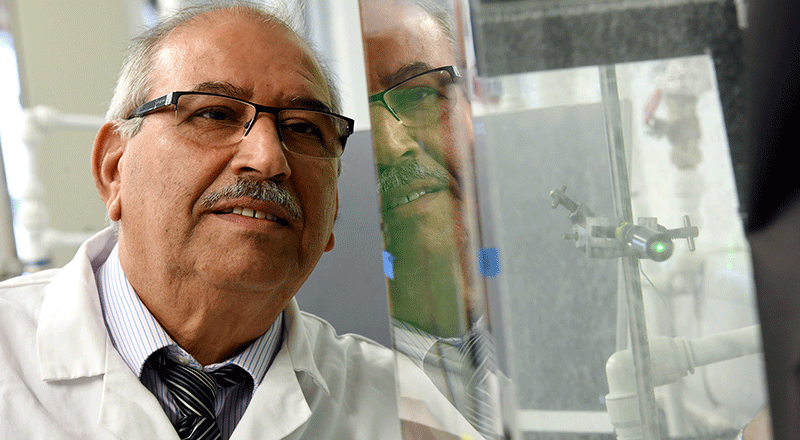Pioneering project to support Malaysian shrimp farmers
A pioneering project which will help shrimp farmers in Malaysia increase their output while saving energy is being led by researchers at Teesside University and the University of Malaya.

The research will help the shrimp farming industry to become more sustainable, both economically and environmentally, by reducing operational costs and environmental impact.
The main focus of the work is to optimise the efficiency of current methods being used by shrimp aquaculture farms through introduction of microbubble technology.
It is part of an ongoing research project with the University of Malaya, which has shown that use of microbubbles can help to increase growth rate of the shrimps, while also reducing the amount of clean water needed to run the shrimp aquaculture facilities. Using less clean water would reduce the environmental impact of the farm.
Microbubbles release free radicals into the water, creating the potential to disinfect the water through detoxification and degradation of organic pollutants. The aim is to develop a micro-bubble aeration system to improve shrimp growth and to support the circulation of Biofloc, whilst operating at the same or reduced energy requirements.
A prototype of the microbubble generator has been built and is being tested at Teesside University. A shrimp nursery pond with microbubble generator and Biofloc has been built at the University of Malaya in Malaysia to study shrimp growth performance.
The project seeks to harness new technologies and help to reduce the cost and environmental impact of shrimp farming
Dr Faik Hamad, Senior Lecturer in Mechanical Engineering in Teesside University’s School of Computing, Engineering & Digital Technologies, said: 'The project seeks to harness new technologies and help to reduce the cost and environmental impact of shrimp farming, in order to help the industry to be more sustainable, both economically and environmentally.'
Dr PooBalan Ganesan, Associate Professor, Faculty of Engineering, University of Malaya, said: 'The project has the potential to contribute to the improvement of shrimp farming processes, which is especially significant given the importance of agriculture to the Malaysian economy.'
The current research is being funded with a £91,848 grant from the Engineering and Physical Sciences Research Council (EPSRC), with a further bid through the Newton Fund which supports science and innovation partnerships promoting the economic development and welfare of collaborating countries.
 Alumni support elite football event
Alumni support elite football event Girls explore digital careers at state-of-the-art new
...
Girls explore digital careers at state-of-the-art new
... Teesside University start-ups Selected for prestigious
...
Teesside University start-ups Selected for prestigious
...